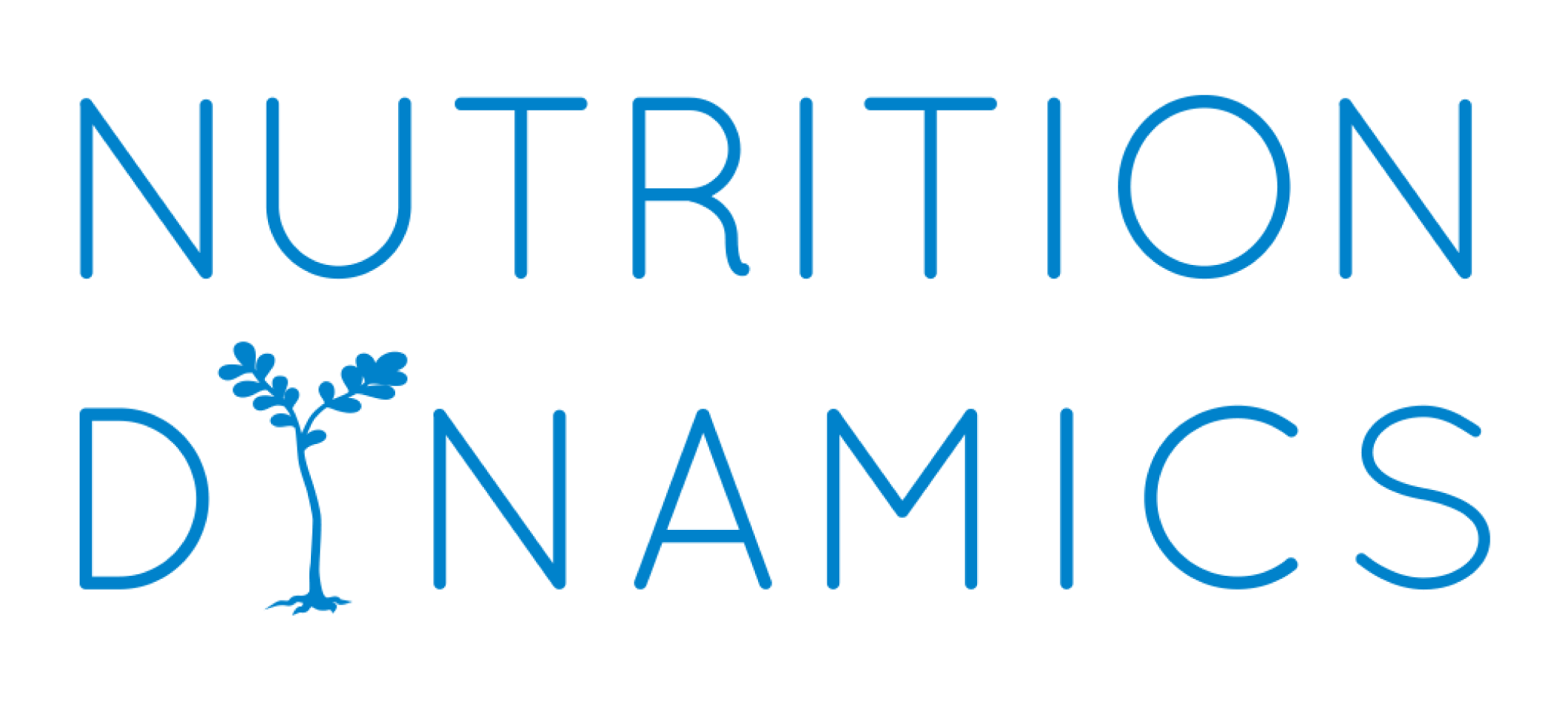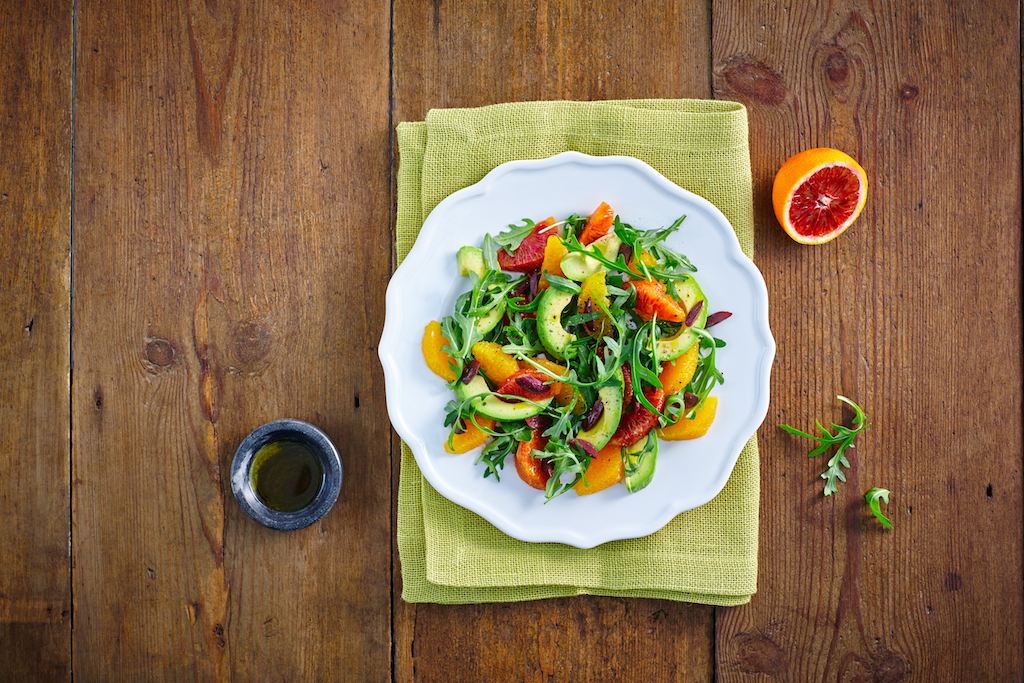A refreshing salad to awaken the taste buds, using seasonal blood oranges, but can be made at other times of the year with any citrus fruits such a red grapefruit. Serve as an accompaniment, starter or add some crumbled feta for a healthy lunch.
Serves 2
Preparation time: 10 minutes
2 blood oranges or a mixture of other citrus
1 large ripe avocado
2 handfuls rocket or other leaves
12 black olives , pitted and halved
Dressing:
2 tbsp extra virgin olive oil
2 tsp red wine vinegar
Pinch cayenne pepper
½ tsp paprika pepper
1 very small clove garlic, crushed
Sea salt and freshly ground black pepper
Optional extras:
Toasted sunflower seeds
Chopped pistachio nuts
Pomegranate seeds
Chopped flat leaved parsley
- Peel and remove the pith from the oranges and cut into segments, set aside. Squeeze the membranes into a bowl to release the remaining juices.
- To make the dressing whisk the oil, vinegar spices and garlic into the orange juices, adding a little salt and pepper to season.
- Halve peel and slice the avocado and arrange with the orange segments and rocket leaves on 2 plates. Scatter over the olives then drizzle over the whisked dressing.
Finish with any of the optional toppings as wished.
Tip : Instead of the cayenne and paprika, use Ras El Hanout spice mix for a truly Moroccan taste
What’s so good about this salad?
Avocado are an excellent source of health promoting monounsaturated fatty acids, (like those found in olive oil), which amounts to 20% fat content of the fruit, and these fats may help to lower cholesterol levels. As well as potassium, vitamin E, B vitamins and fibre. Did you know that one avocado has the potassium content of 2-3 bananas and this mineral helps regulate blood pressure? In addition avocados are a good source of copper and vitamin C which contribute to optimal health since they provide potent antioxidant activity and protect cells from free radical damage. Furthermore they contain Vitamin K which plays a role in proper blood and bone function.
Oranges are known for their Vitamin C content, but it is convenient that the 60 different flavonoids (types of phytonutrients) found in oranges work synergistically with Vitamin C to provide powerful anti-inflammatory and antioxidant protection to cell structures , including DNA.
Other healthy nutrients include fibre, folate, potassium and in particular the flavonoid hesperidin which has been found to lower high blood pressure as well as cholesterol.
As a medium size orange contains only 62 calories, it is an ideal food for weight control.
Olives are a staple of the Mediterranean diet and a concentrated source of oleic acid which exerts a protective effect in keeping the cell walls healthy. A good source of vitamin E, also protecting cells from damage. The polyphenolic compounds in olives have all been found to inhibit markers of inflammation which is considered the precursor of many chronic health conditions.
Nutritional Information
Per serving (based on 2 servings) Cals 375, Protein 4.0g, Carbohydrate 16g, of which sugar 13g, Total Fat 33g, of which saturates 5.7g, Fibre 8.3g, Salt 0.5gShare this Post
Recipe : Lorna Rhodes www.nutritiondynamics.co.uk

